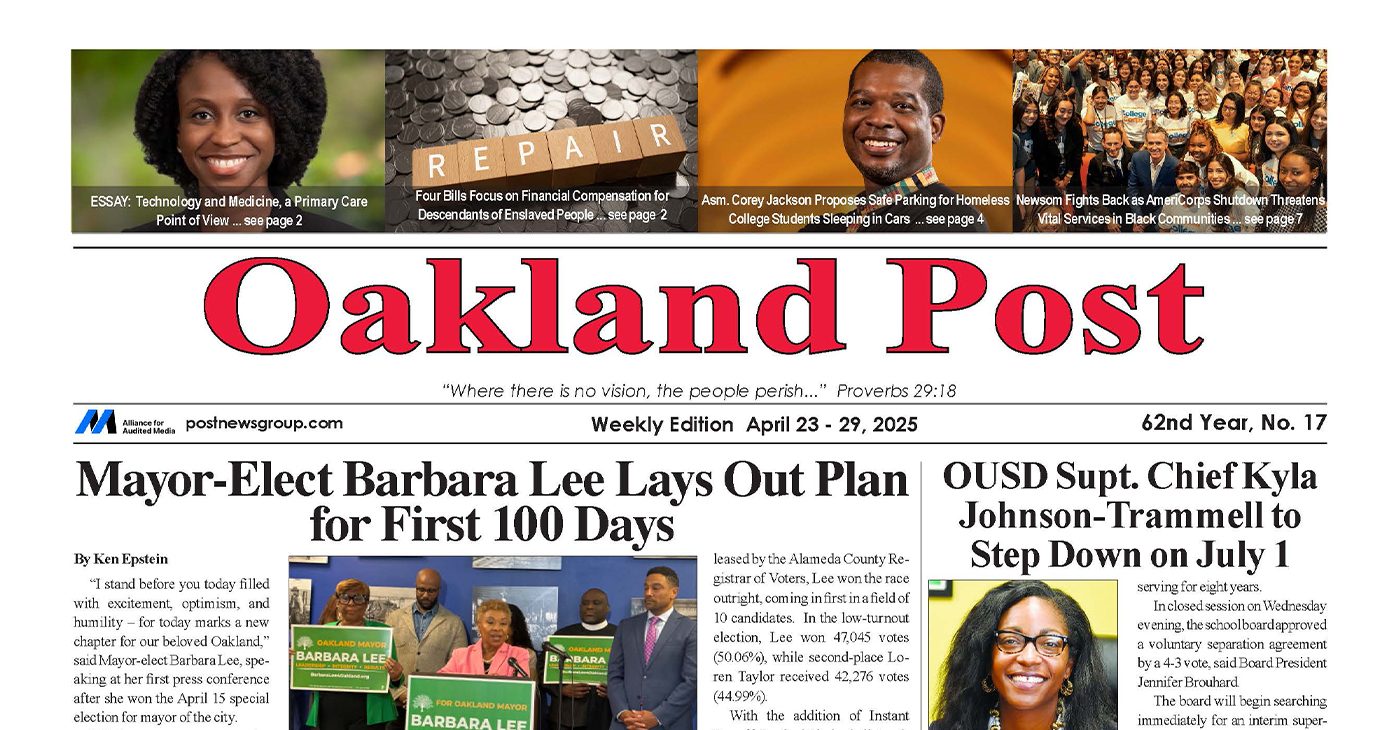National
Colorado NAACP Office Vows Vigilance After Blast Near Office

Investigators look over the aftermath of a homemade explosive, which was placed need the Colorado Springs chapter of the NAACP, January 6, 2015. (Christian Murdock/The Colorado Springs Gazette/AP)
SADIE GURMAN, Associated Press
DENVER (AP) — Staff members at a Colorado NAACP office say they are waiting for more information before drawing any conclusions about an explosion near their chapter, even as the FBI said it was investigating whether it was a case of domestic terrorism.
“We’re standing vigilant and are trying not to let this disrupt anything,” Colorado Springs NAACP volunteer Harry Leroy said Wednesday, a day after someone set off a homemade explosive device outside the group’s building, about an hour south of Denver.
The FBI said it is investigating the possibility that the act was a case of domestic terrorism, but it had not determined whether the nation’s oldest civil rights organization was targeted.
“We’re exploring any potential motive, and domestic terrorism is certainly one among many possibilities,” Denver FBI spokeswoman Amy Sanders said.
The blast happened about 11 a.m. Tuesday outside a barbershop that shares a building with the NAACP chapter. There were no injuries and only minor damage.
While local chapter members said they were not making any conclusions, speculation washed across social media about whether the explosion was a hate crime. Investigators have not ruled out any possibilities, Sanders said.
An improvised explosive device was detonated against the low-slung building, which sits in a mostly residential neighborhood, but a gasoline canister placed next to the device failed to ignite. Members of the FBI’s Joint Terrorism Task Force are investigating because of the explosion’s proximity to the NAACP office, Sanders said.
Investigators were still looking for a balding white man in his 40s who might be driving a dirty pickup truck. His identity was still under investigation.
“This is someone we’d like to speak to,” Sanders said.
Republican Sen. Kent Lambert, whose district includes the NAACP office, said such violence will not be tolerated.
“We will track you down, prosecute you to the fullest extent of the law and put you in prison,” he said. “We will not tolerate that kind of violence in our society.”
Both the chapter office and the barbershop reopened Wednesday with little police presence.
Investigators were briefing the chapter’s president, Henry Allen Jr., and he did not return calls seeking for comment.
“We’ll move on,” Allen wrote on the chapter’s Facebook page. “This won’t deter us from doing the job we want to do in the community.”
Gene Southerland owns Mr. G’s Hair Design Studios next door and was cutting a client’s hair there when the explosion occurred. The blast was strong enough to knock items off the walls, but the quick police response was comforting, he said.
Southerland said the FBI had given him no information on its early findings. But he said he didn’t believe the barbershop or its predominantly black clientele was targeted.
Leroy said he believed there were surveillance cameras behind the building, but he did not know whether they captured anything of value.
Gregory Alan Johnson, who lives nearby, said he was unaware of any prior problems near the NAACP offices. Colorado Springs police wouldn’t comment about the case, but Lt. Catherine Buckley said the department found nothing concerning in any previous calls for service.
Those who heard the blast, including Southerland, said it sounded like a single, loud “boom.”
Investigators Tuesday were examining a red gasoline canister with a yellow nozzle. They also checked pieces of duct tape and metal lying 40 to 50 feet from the explosion site.
Copyright 2015 The Associated Press. All rights reserved. This material may not be published, broadcast, rewritten or redistributed.
Activism
Oakland Post: Week of April 23 – 29, 2025
The printed Weekly Edition of the Oakland Post: Week of April 23 – 29, 2025

To enlarge your view of this issue, use the slider, magnifying glass icon or full page icon in the lower right corner of the browser window.
#NNPA BlackPress
Chavis and Bryant Lead Charge as Target Boycott Grows
BLACKPRESSUSA NEWSWIRE — Surrounded by civil rights leaders, economists, educators, and activists, Bryant declared the Black community’s power to hold corporations accountable for broken promises.

By Stacy M. Brown
BlackPressUSA.com Senior National Correspondent
Calling for continued economic action and community solidarity, Dr. Jamal H. Bryant launched the second phase of the national boycott against retail giant Target this week at New Birth Missionary Baptist Church in Atlanta. Surrounded by civil rights leaders, economists, educators, and activists, Bryant declared the Black community’s power to hold corporations accountable for broken promises. “They said they were going to invest in Black communities. They said it — not us,” Bryant told the packed sanctuary. “Now they want to break those promises quietly. That ends tonight.” The town hall marked the conclusion of Bryant’s 40-day “Target fast,” initiated on March 3 after Target pulled back its Diversity, Equity, and Inclusion (DEI) commitments. Among those was a public pledge to spend $2 billion with Black-owned businesses by 2025—a pledge Bryant said was made voluntarily in the wake of George Floyd’s murder in 2020.“No company would dare do to the Jewish or Asian communities what they’ve done to us,” Bryant said. “They think they can get away with it. But not this time.”
The evening featured voices from national movements, including civil rights icon and National Newspaper Publishers Association (NNPA) President & CEO Dr. Benjamin F. Chavis Jr., who reinforced the need for sustained consciousness and collective media engagement. The NNPA is the trade association of the 250 African American newspapers and media companies known as The Black Press of America. “On the front page of all of our papers this week will be the announcement that the boycott continues all over the United States,” said Chavis. “I would hope that everyone would subscribe to a Black newspaper, a Black-owned newspaper, subscribe to an economic development program — because the consciousness that we need has to be constantly fed.” Chavis warned against the bombardment of negativity and urged the community to stay engaged beyond single events. “You can come to an event and get that consciousness and then lose it tomorrow,” he said. “We’re bombarded with all of the disgust and hopelessness. But I believe that starting tonight, going forward, we should be more conscious about how we help one another.”
He added, “We can attain and gain a lot more ground even during this period if we turn to each other rather than turning on each other.” Other speakers included Tamika Mallory, Dr. David Johns, Dr. Rashad Richey, educator Dr. Karri Bryant, and U.S. Black Chambers President Ron Busby. Each speaker echoed Bryant’s demand that economic protests be paired with reinvestment in Black businesses and communities. “We are the moral consciousness of this country,” Bryant said. “When we move, the whole nation moves.” Sixteen-year-old William Moore Jr., the youngest attendee, captured the crowd with a challenge to reach younger generations through social media and direct engagement. “If we want to grow this movement, we have to push this narrative in a way that connects,” he said.
Dr. Johns stressed reclaiming cultural identity and resisting systems designed to keep communities uninformed and divided. “We don’t need validation from corporations. We need to teach our children who they are and support each other with love,” he said. Busby directed attendees to platforms like ByBlack.us, a digital directory of over 150,000 Black-owned businesses, encouraging them to shift their dollars from corporations like Target to Black enterprises. Bryant closed by urging the audience to register at targetfast.org, which will soon be renamed to reflect the expanding boycott movement. “They played on our sympathies in 2020. But now we know better,” Bryant said. “And now, we move.”
#NNPA BlackPress
The Department of Education is Collecting Delinquent Student Loan Debt
BLACKPRESSUSA NEWSWIRE — the Department of Education will withhold money from tax refunds and Social Security benefits, garnish federal employee wages, and withhold federal pensions from people who have defaulted on their student loan debt.

By April Ryan
Trump Targets Wages for Forgiven Student Debt
The Department of Education, which the Trump administration is working to abolish, will now serve as the collection agency for delinquent student loan debt for 5.3 million people who the administration says are delinquent and owe at least a year’s worth of student loan payments. “It is a liability to taxpayers,” says White House Press Secretary Karoline Leavitt at Tuesday’s White House Press briefing. She also emphasized the student loan federal government portfolio is “worth nearly $1.6 trillion.” The Trump administration says borrowers must repay their loans, and those in “default will face involuntary collections.” Next month, the Department of Education will withhold money from tax refunds and Social Security benefits, garnish federal employee wages, and withhold federal pensions from people who have defaulted on their student loan debt. Leavitt says “we can not “kick the can down the road” any longer.”
Much of this delinquent debt is said to have resulted from the grace period the Biden administration gave for student loan repayment. The grace period initially was set for 12 months but extended into three years, ending September 30, 2024. The Trump administration will begin collecting the delinquent payments starting May 5. Dr. Walter M. Kimbrough, president of Talladega College, told Black Press USA, “We can have that conversation about people paying their loans as long as we talk about the broader income inequality. Put everything on the table, put it on the table, and we can have a conversation.” Kimbrough asserts, “The big picture is that Black people have a fraction of wealth of white so you’re… already starting with a gap and then when you look at higher education, for example, no one talks about Black G.I.’s that didn’t get the G.I. Bill. A lot of people go to school and build wealth for their family…Black people have a fraction of wealth, so you already start with a wide gap.”
According to the Education Data Initiative, https://educationdata.org/average-time-to-repay-student-loans It takes the average borrower 20 years to pay their student loan debt. It also highlights how some professional graduates take over 45 years to repay student loans. A high-profile example of the timeline of student loan repayment is the former president and former First Lady Barack and Michelle Obama, who paid off their student loans by 2005 while in their 40s. On a related note, then-president Joe Biden spent much time haggling with progressives and Democratic leaders like Senators Elizabeth Warren and Chuck Schumer on Capitol Hill about whether and how student loan forgiveness would even happen.
-

 Activism4 weeks ago
Activism4 weeks agoOakland Post Endorses Barbara Lee
-

 Activism4 weeks ago
Activism4 weeks agoOakland Post: Week of March 28 – April 1, 2025
-

 Activism3 weeks ago
Activism3 weeks agoOakland Post: Week of April 2 – 8, 2025
-

 #NNPA BlackPress3 weeks ago
#NNPA BlackPress3 weeks agoTrump Profits, Black America Pays the Price
-

 Activism2 weeks ago
Activism2 weeks agoOakland Post: Week of April 9 – 15, 2025
-

 #NNPA BlackPress3 weeks ago
#NNPA BlackPress3 weeks agoHarriet Tubman Scrubbed; DEI Dismantled
-

 #NNPA BlackPress3 weeks ago
#NNPA BlackPress3 weeks agoTrump Targets a Slavery Removal from the National Museum of African-American History and Culture
-

 #NNPA BlackPress3 weeks ago
#NNPA BlackPress3 weeks agoLawmakers Greenlight Reparations Study for Descendants of Enslaved Marylanders





















































